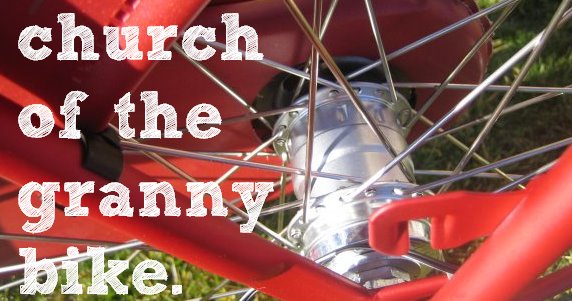There's obviously no real answer to this, and even discussing it leaves me wide open to criticism and a sense of discomfort arises (is it safe to talk about safety? on my own blog??). I'd thought about putting it on a spectrum and attacking it that way, but the more I chew on this the more I realize that safety is too complex for that (oh cultural history perspective, you are ruining me!). So here's the three instances that have caused me to consider safety lately. I'll present the evidence, maybe make some conclusions, and then you can tell me where you stand if you like because I am really curious about what we conceive safety to be.
1. Bike Helmets
I don't own a bike helmet. It didn't make it into my car when I left Utah because I had worn it all of 5 times while I lived there; it didn't fit right, it looked dumb, and in my opinion, one doesn't need a helmet when riding on sidewalks on campus (which at Utah was an accepted practice, not a lawbreaking activity like it is here in Philly) unless it's icey. The reasoning I usually gave for not wearing a helmet were:
a. I ride a very heavy steel bike rather slowly.
b. I don't like biking to appear unsafe (!) because like others, I generally don't think it is. I follow the rules of the sidewalk / road, after all.
c. Unattractive, sweaty head, messed up hair, etc. etc.
However, now that I am:
a. on the road a lot more
b. riding a smaller, lighter bike, faster
I've been questioning whether this change of circumstances makes me less safe and mandates a helmet. I don't feel less safe. I choose what bike to ride based on where I'm riding at what time of the day to ensure that I am slow, sturdy, and visible when I'm in the dark or in high traffic areas. On one side is the friend how says, "You never know when you could get hit," and on the other side is the friend who, having been hit several times while not wearing a helmet says, "Whatever."
See how fraught safety is? You could be doing everything you can to prevent injury (whether or not that includes wearing a helmet) and still get injured.
2. Walking around.
I live in a pretty social neighborhood. People are always chatting me up, on the bike, walking, at the bus stop, whatever- this place is to me, unavoidably interactive. I love it. On the other hand, women's safety has been compromised in this city in recent history (see here and here). I work hard to be aware of my surroundings and don't talk to everyone who talks to me, and steer clear of scary places or opt to ride my bike if I have to travel through. A recent article in the NYT threw down all the arguments for and against letting kids walk to school, and I think catches this argument pretty well- statistics, social pressure, desire for independence- there's a lot at stake and a lot that factors into how we perceive what is safe.
Ok. This is starting to feel tedious, I think I am belaboring the point and getting a little tired and incoherent.
3. Annie Le.
Security records show that this girl went into a building- a "secure" campus building, no less- and she never came out. What more is there to say about that? Given the nature of the small communities that work in places like that... yah, there is really nothing that can be said.
It seems to be that feeling unsafe is a recognition of when our agency can be unexpectedly trumped by that of others or circumstances to in large or small ways change our destinies (or outcomes, if we are feeling less dramatic). It seems an issue of control- how much control do we need to have to feel like we can function? At what point do we have to let go and let faith kick in so we can live? I feel like so much of the time whether I feel safe or not is contingent on the "vibe"- if I get a bad vibe, feel some dark energy, or whatever, I am out of there, I am calling the cops, I am doing whatever it takes to make the circumstances feel right. But after you've done all you can do, there's still nothing you can do, ya know? How do you reconcile that? In in the end, is safety just a construct or is it really important?

1 comment:
Post a Comment